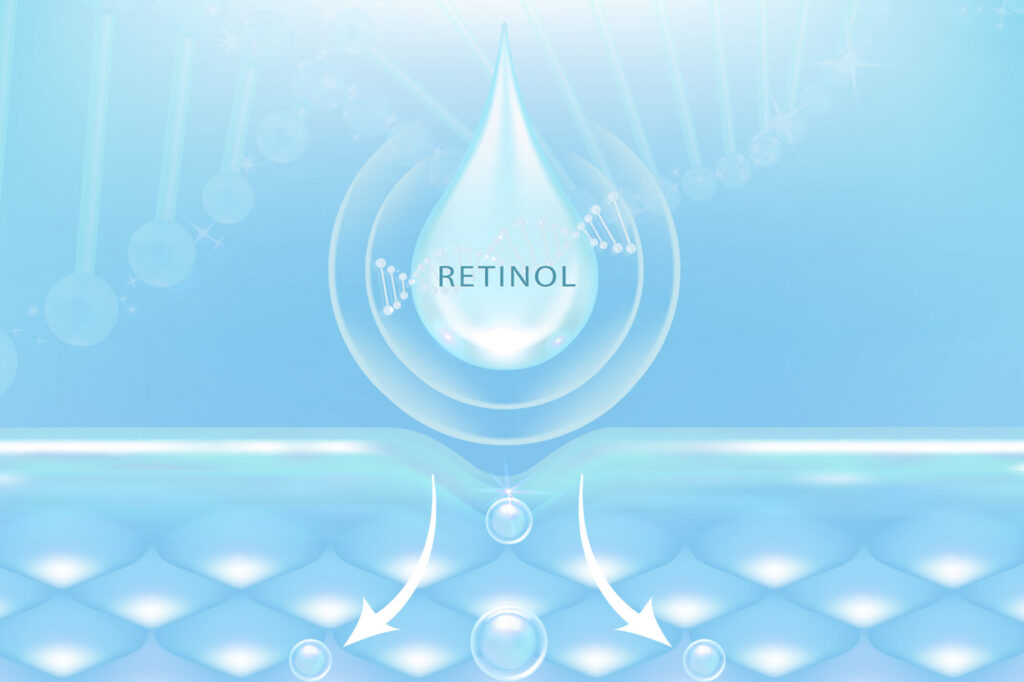

When it comes to new-fangled treatments, hot trends, and must-know products that are dominating the market as the latest fad, retinol is never going to be that brand new product taking the world by storm.
Why? Because retinol is a skincare staple. In other words, a product that’s never going out of style for very good reason.
What exactly is that reason?
It’s inarguably the holy grail of skincare.
If you’re an esthetician or a skin-enthusiast, it’s likely that the term retinol isn’t brand new to you.
But ask yourself, do you know everything there is to know about retinol?
Do you know why this well-loved skincare ingredient is never going to disappear from the list of every esthetician, dermatologist, and skincare enthusiast out there?
And further, do you know why this product is such a staple for all skincare experts no matter what they’re aiming to treat?
If not, consider this the perfect starting point.
In this blog, we’re going to break down retinol to give you the solid, educational foundation you need to fully understand this skincare and beauty product that’s never going out of style.
The term retinol can be a bit confusing simply because it’s often used as an umbrella term for a variety of forms of vitamin A. We’re here to break down some of that confusion, so we’ll start with some basic definitions.
Retinol is a type of retinoid, which is a type of drug, product, or topical treatment that’s derived from vitamin A. Retinoids, the broader term for retinol, can include both over-the-counter treatments and stronger treatments that require a prescription.
You’re probably wondering what exactly retinol can do (and why it’s earned such a pedestal in the skincare world). Technically, retinol promotes cell turnover and prevents the breakdown of collagen (the protein that helps to keep skin firm, elastic, and healthy).
How does it do this? By converting into retinoic acid in the body and penetrating the stratum corneum and the dermis layers of your skin and turning cells over at their source.
The result? Smoother skin, fewer lines, firmer texture, less frequent breakouts, and overall healthier skin.
Retinol can be used to:
And more!
In that definition above, we threw out two distinct words, retinol and retinoid.
You’re probably wondering, what exactly is the difference? Let’s lay that out ASAP to quell any confusion.
Here’s the basic breakdown.
Retinoids are vitamin A derivatives that are stronger, more powerful, and require a prescription to get your hands on. Why? Because this hits you with a power-packed punch of active ingredients that, though effective and helpful, can cause severe irritation, dryness, itching, redness, and even something called “retinization” of the skin where you peel and experience painful irritation (this is sometimes coined the “retinol uglies” phase).
Retinols are the OTC, less-powerful type of retinoid that’s found in a lot of over-the-counter ingredients. Retinol is incredibly effective but is different than retinoids on a molecular level. Technically, retinols are less intense than a prescription retinoid and likely won’t cause the same degree of irritation, peeling, and side effects. Overall, retinols are a derivative of vitamin A that’s gentler and in its ester forms—this simply means that this type of derivative takes more steps to be converted to retinoic acid, making it a weaker product.
Retinol is a useful skin care ingredient to keep in your repertoire, but there are some things you should know about it before you add it to your own routine or suggest it to your clients.
Whether you’re seeking knowledge on some of the most popular ingredients and products in the skincare realm, you’re hoping to drop your own private label, or you’re on the hunt for top-notch, high-quality products you can’t get anywhere else, Spa De Soleil is proud to provide you with the resources and products you need for your skin to succeed.
From comprehensive knowledge to guide your skincare journey to leading services in research, manufacturing, and end-to-end beauty and wellness product creation, Spa De Soleil has your back—no matter what you might need.
Still have questions? Reach out to our dedicated team of professionals here to get the full scoop on what we can offer you—we’re happy to be a helpful skin resource in any and every way we can.
Don’t forget to keep up with our regularly updated blog, too, for more information, helpful skin resources, and new product lineups.
IN-HOUSE, EZ-RUN & SAMPLES SHOPS TERMS AND CONDITIONS AGREEMENT
By placing this order with Spa de Soleil, Inc. (“Developer”), you (“Client”) agree to the following terms and conditions of sale. Please review carefully and confirm your agreement with your signature below.
This agreement constitutes the entire understanding between Client and Developer with respect to the subject matter and supersedes all prior agreements between the parties and any representations or promises made by third parties, whether oral or written. This agreement may be amended or modified only by an instrument in writing, signed by an authorized representative of both parties.
For questions regarding your order or for any notices to be sent pursuant to this Agreement, email Developer at info@spadesoleil.com.